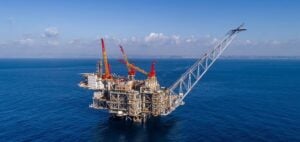The interim government of Bangladesh has decided to resume imports of liquefied natural gas (LNG) on the spot market.
This measure comes after a two-month interruption, and is accompanied by a change in the regulatory framework to ensure transparent and competitive bidding procedures.
The Economic Affairs Committee approved a proposal from the Energy and Mineral Resources Division under the Ministry of Power, Energy and Mineral Resources, allowing 23 pre-selected companies to bid for LNG supply contracts.
End of Direct Negotiations with Suppliers
The government is switching from the emergency regime of the Quick Enhancement of Electricity and Energy Supply (Special Provision) Act 2010 (Amended 2021), better known as the Speedy Act, to the Public Procurement Rules (PPR) of 2008.
This change now prohibits any negotiations with bidders after the call for tenders, reinforcing the rigor of the process.
The Public Procurement Rules allow tenders to be limited to pre-selected suppliers, but stipulate that no further negotiations are permitted after the initial call for tenders.
Until now, it was common practice for Rupantarita Prakritik Gas Co Ltd (RPGCL) to enter into negotiations with the lowest bidder if spot prices were deemed too high.
This flexibility has now been removed, to avoid conflicts of interest and ensure more transparent commercial practices in LNG procurement.
Infrastructure problems with the Summit LNG Terminal
The resumption of spot LNG imports depends on the availability of regasification infrastructure.
Currently, the Summit LNG terminal, with a capacity of 3.75 million metric tons per year, has been offline since May 30, following an incident during cyclone Remal.
This unavailability is complicating the resumption of LNG imports, as the terminal has not yet indicated a restart date.
This situation is impacting Bangladesh’s import capacity, requiring increased coordination to secure supplies.
The country may have to rely on other infrastructures or seek temporary alternatives to compensate for this lack of regasification capacity.
Market and investment implications
The move to a stricter tendering system under the PPR-2008 rules could influence the future strategies of market players.
By ensuring a more predictable and transparent environment, the government hopes to attract new suppliers and stabilize import costs.
However, this approach could also limit the flexibility needed in times of volatile global LNG prices.
For local and international companies involved in importing LNG into Bangladesh, these changes mean adapting to a more structured regulatory framework, potentially less favorable to rapid adjustments and bilateral negotiations.
The impacts of this regulation will need to be closely monitored to understand its repercussions on prices and supply in the medium term.





















